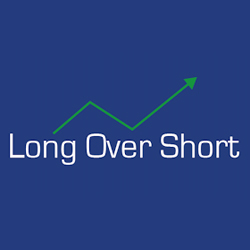I’ll conclude my series on the efficient market hypothesis (and inefficiency) with a look at common misunderstandings of what market efficiency means and the implications of market efficiency in today’s Newsletter, and in tomorrow’s I’ll pull the threads together.

There are good grounds for doubting some aspects of the EMH and a reasoned debate can take place with advocates for efficiency and inefficiency stating their cases with rigorous argument and robust empirical methodology.
However, the high-quality debate has sometimes been overshadowed by criticism based on one or more misunderstandings of the EMH. There are three classic misconceptions.
- Any share portfolio will perform as well as or better than a special trading rule designed to outperform the market
A monkey choosing a portfolio of shares from the Financial Times for a buy and hold strategy is nearly, but not quite, what the EMH advocates suggest as a strategy likely to be as rewarding as special inefficiency-hunting approaches.
The monkey does not have the financial expertise needed to construct broadly based portfolios which fully diversify away unsystematic risk.
A selection of shares in just one or two industrial sectors may expose the investor to excessive risk.
So it is wrong to conclude from the EMH evidence that it does not matter what the investor does, and that any portfolio is acceptable.
The EMH says that after first eliminating unsystematic risk by holding broadly based portfolios and then adjusting for the residual systematic risk, investors will not achieve abnormal returns.
- There should be fewer price fluctuations
If shares are efficiently priced why is it that they move every day even when there is no announcement concerning a particular company?
Answer: This is what we would expect in an efficient market. Prices move because new information is coming to the market every hour which may have some influence on the performance of a specific company. For example, the governor of the Bank of England may announce an interest rate rise, the latest industrial output figures may be released and so on.
- Only a minority of investors are actively trading, most are passive, therefore efficiency cannot be achieved
This too is wrong. It only needs a few trades by informed investors using all the publicly available information to position (through their buying and selling actions) a share at its semi-strong-form efficient price.
Implications of the EMH for investors
If the market is efficient there are a number of implications for investors. Even if it is merely efficient most of the time, for most participants a sensible working assumption is that pricing is based on fundamental values and the following implications apply.
- For the vast majority of people public information cannot be used to earn abnormal returns
(This refers to returns above the normal level for that systematic risk class.)
The implications are that fundamental analysis is a waste of money and that so long as efficiency is maintained the average investor should simply select a suitably diversified portfolio, thereby avoiding costs of analysis and transaction.
This message has struck a chord with millions of investors and thousands of billions of pounds have been placed with fund managers who merely replicate a stock market index (index funds or trackers) rather than try to pick winners in an actively managed fund.
It has been found that the active fund managers generally underperform the m……….
………………To read the rest of this article, and more like it, subscribe to my premium newsletter Deep Value Shares – click here http://newsletters.advfn.com/deepvalueshares/subscribe-1















